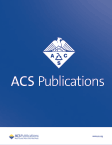Abstract PO1-05-01: Cyclin-dependent Kinase 4/6 Inhibitors Combined with Radiotherapy in the Management of Brain Metastases in HR-positive/HER2-negative Breast Cancer Patients
IF 2.9
Q2 PUBLIC, ENVIRONMENTAL & OCCUPATIONAL HEALTH
引用次数: 0
Abstract
Purpose: Cyclin-dependent kinase 4/6 inhibitors (CDK4/6i) plus endocrine therapy demonstrated overall survival benefits in advanced breast cancer patients (ABC), hormone receptor-positive, HER2-negative (HR+/HER2-) and remains the mainstay in the first and second-line treatment. Brain metastases are rare at the beginning of treatment in this group of patients and are found more often during subsequent lines of treatment and other subtypes of breast cancer. However, there is a paucity of data on the safety and efficacy of multimodality CDK4/6i and radiotherapy treatment in the management of brain metastases. Thus, we performed a retrospective analysis of ABC patients (pts) treated at our institution with radiation therapy to the brain and CDK4/6i. Pts who received radiotherapy before CDK4/6i initiation or concurrently with CDK4/6i (group 1) were compared to the patients who progressed in the brain during CDK4/6i treatment and then received radiotherapy (group 2). The primary endpoint was progression-free survival (PFS) in group 1 vs. group 2; the secondary endpoints were local control (LC) within the brain in group 1 vs. group 2 and severe toxicity. Materials/Methods: Among 379 pts who received CDK4/6i, 26 pts (6.9%) received radiotherapy to the brain. 17 pts received radiotherapy before or concurrent with CDK4/6i and were included in group 1. Nine pts received radiotherapy after CDK4/6i discontinuation due to disease progression and comprised group 2. Results: The median age was 51.5 years (IQR range 41-62). Six pts had de novo metastatic disease. The majority of patients were treated in the first-line setting (15 pts, 58%). 17 pts received ribociclib, 7 palbociclib, and 2 abemaciclib. 15 pts received letrozole as an endocrine compound and 11 pts fulvestrant. 19 pts (73%) received previous chemotherapy. Six pts had an ECOG performance status of 0, 15 pts ECOG 1, and 5 pts ECOG 2. The most common local treatment was whole-brain radiotherapy with a total dose of 20 Gy delivered in 5 fractions (fr) (11 pts: 4 pts VMAT, 2 pts IMRT, 3 pts 3D, and 2 pts 2D). Eight pts received stereotactic radiation therapy (6 pts with Linac: 2 pts 24 Gy/2 fr, 2 pts 24 Gy/3 fr, 2 pts 25 Gy/5 fr; 1 pt GammKnife 20 Gy/1 fr, 1 pt Cyberknife 15 Gy/3 fr). Six- and 12-month PFS in group 1 was 88.2% (95% CI74.1-100) and 58.8% (95% CI: 37.7- 91.8), respectively, whereas in group 2, six- and 12-month PFS was 55.6% (95%CI: 31- 99.7) and 44.4% (95% CI: 21- 92.2), respectively. Six- and 12-month LC in group 1 was 92.3% (95%CI: 78.9-100) and 83.9% (65.7-100), respectively. LC in group 2 was poor: 3-month LC was only 66.7 (30-100). At a median follow-up of 8.8 months, no unanticipated toxicity was reported. Conclusion: Multimodality treatment with CDK4/6i and radiotherapy to the brain is safe and effective. Patients who developed metastases during CDK4/6i treatment tend to have a worse prognosis in comparison to those who received prior radiotherapy. CDK4/6i following radiotherapy seems to be an effective and valuable treatment option in this particular metastatic breast cancer population. Citation Format: Marcin Kubeczko, Dorota Gabryś, Anna Polakiewicz-Gilowska, Aleksandra Krzywon, Donata Gräupner, Barbara Łanoszka, Marta Mianowska-Malec, Aleksandra Leśniak, Katarzyna Świderska, Konstanty Chomik, Barbara Grandys, Michał Jarząb. Cyclin-dependent Kinase 4/6 Inhibitors Combined with Radiotherapy in the Management of Brain Metastases in HR-positive/HER2-negative Breast Cancer Patients [abstract]. In: Proceedings of the 2023 San Antonio Breast Cancer Symposium; 2023 Dec 5-9; San Antonio, TX. Philadelphia (PA): AACR; Cancer Res 2024;84(9 Suppl):Abstract nr PO1-05-01.摘要 PO1-05-01:细胞周期蛋白依赖性激酶4/6抑制剂联合放疗治疗HR阳性/HER2阴性乳腺癌患者的脑转移瘤
目的:在激素受体阳性、HER2-阴性(HR+/HER2-)的晚期乳腺癌患者(ABC)中,细胞周期蛋白依赖性激酶4/6抑制剂(CDK4/6i)加内分泌治疗显示了总体生存率的优势,目前仍是一线和二线治疗的主流。这类患者在治疗初期很少出现脑转移,而在后续治疗和其他亚型乳腺癌的治疗中,脑转移则更为常见。然而,关于多模式 CDK4/6i 和放疗治疗脑转移的安全性和有效性的数据却很少。因此,我们对在本院接受脑部放疗和 CDK4/6i 治疗的 ABC 患者(pts)进行了回顾性分析。我们将在 CDK4/6i 开始前或与 CDK4/6i 同时接受放疗的患者(第 1 组)与在 CDK4/6i 治疗期间脑部出现进展、随后接受放疗的患者(第 2 组)进行了比较。主要终点是第1组与第2组的无进展生存期(PFS);次要终点是第1组与第2组的脑局部控制率(LC)和严重毒性。材料/方法:在接受 CDK4/6i 治疗的 379 例患者中,有 26 例(6.9%)接受了脑部放疗。17例患者在CDK4/6i之前或与CDK4/6i同时接受放疗,被归入第1组;9例患者因疾病进展而停用CDK4/6i后接受放疗,被归入第2组。研究结果中位年龄为51.5岁(IQR范围为41-62岁)。6名患者患有新发转移性疾病。大多数患者接受了一线治疗(15 例,58%)。17名患者接受了ribociclib治疗,7名患者接受了palbociclib治疗,2名患者接受了abemaciclib治疗。15名患者接受来曲唑作为内分泌化合物治疗,11名患者接受氟维司群治疗。19名患者(73%)曾接受过化疗。6例患者的ECOG表现为0,15例患者的ECOG表现为1,5例患者的ECOG表现为2。最常见的局部治疗是全脑放疗,总剂量为20 Gy,分5次放疗(11例:4例VMAT,2例IMRT,3例3D,2例2D)。8例患者接受了立体定向放射治疗(6例使用Linac:2例24 Gy/2 fr,2例24 Gy/3 fr,2例25 Gy/5 fr;1例GammKnife 20 Gy/1 fr,1例Cyberknife 15 Gy/3 fr)。第1组的6个月和12个月PFS分别为88.2%(95% CI74.1-100)和58.8%(95% CI:37.7- 91.8),而第2组的6个月和12个月PFS分别为55.6%(95%CI:31- 99.7)和44.4%(95% CI:21- 92.2)。第 1 组患者的 6 个月和 12 个月生存率分别为 92.3% (95%CI: 78.9-100) 和 83.9% (65.7-100)。第 2 组的 LC 较差:3 个月的 LC 仅为 66.7(30-100)。中位随访时间为 8.8 个月,无意外毒性报告。结论CDK4/6i 和脑部放疗的多模式治疗安全有效。与之前接受放疗的患者相比,在 CDK4/6i 治疗期间出现转移的患者预后较差。在这种特殊的转移性乳腺癌人群中,放疗后使用CDK4/6i似乎是一种有效且有价值的治疗方案。引用格式:Marcin Kubeczko, Dorota Gabryś, Anna Polakiewicz-Gilowska, Aleksandra Krzywon, Donata Gräupner, Barbara Łanoszka, Marta Mianowska-Malec, Aleksandra Leśniak, Katarzyna Świderska, Konstanty Chomik, Barbara Grandys, Michał Jarząb.Cyclin-dependent Kinase 4/6 Inhibitors Combined with Radiotherapy in the Management of Brain Metastases in HR-positive/HER2 negative Breaster Cancer Patients [abstract].在:2023 年圣安东尼奥乳腺癌研讨会论文集;2023 年 12 月 5-9 日;德克萨斯州圣安东尼奥。费城(宾夕法尼亚州):AACR; Cancer Res 2024;84(9 Suppl):Abstract nr PO1-05-01.
本文章由计算机程序翻译,如有差异,请以英文原文为准。
求助全文
约1分钟内获得全文
求助全文
来源期刊

ACS Chemical Health & Safety
PUBLIC, ENVIRONMENTAL & OCCUPATIONAL HEALTH-
CiteScore
3.10
自引率
20.00%
发文量
63
期刊介绍:
The Journal of Chemical Health and Safety focuses on news, information, and ideas relating to issues and advances in chemical health and safety. The Journal of Chemical Health and Safety covers up-to-the minute, in-depth views of safety issues ranging from OSHA and EPA regulations to the safe handling of hazardous waste, from the latest innovations in effective chemical hygiene practices to the courts'' most recent rulings on safety-related lawsuits. The Journal of Chemical Health and Safety presents real-world information that health, safety and environmental professionals and others responsible for the safety of their workplaces can put to use right away, identifying potential and developing safety concerns before they do real harm.
 求助内容:
求助内容: 应助结果提醒方式:
应助结果提醒方式:


